- Celebrating the Gorgeous Rose day!!!
- Celebrating the Heart Beating Propose day!!!
- Celebrating the Gorgeous Lara Turner!!!
- Celebrating Ronald Colman!!!
- Celebrating the Most Adorable Teddy day!!!
- Celebrating the Most Trustful Promise day!!!
- Celebrating the most Pleasant Hug day!!!
- Celebrating the most Sweetest Kiss day!!!
- Celebrating the most Awesome Valentine's day!!!
- Spicy Chettinad Egg Curry
- Yummy - Egg - Soya curry!!!
- Celebrating Barbara Jordan!!!
HOW BRANDING AFFECTS CONSUMER BEHAVIOR
- Home /
- Technology /
- HOW BRANDING AFFECTS CONSUMER BEHAVIOR

HOW BRANDING AFFECTS CONSUMER BEHAVIOR
How Branding Affects Consumer Behavior
The word “brand” is a shortened form of the words “to burn,” and it has been used to refer to an identifying mark for centuries. Brands are a way for consumers to identify themselves with certain products or companies. Brands not only provide a sense of identity but also create expectations in regard to quality and price. This is especially true when considering that brands have become so prominent in our society that some people say they can no longer afford anything other than generic goods due to the higher prices associated with branded items. In this respect, branding affects consumer behavior.
Many companies create a brand image for their company to stand out from the competition. The purpose of branding is to differentiate your product or service from others and make it more desirable. It has been found that consumers are more likely to purchase products and services if they believe in the brand’s values, which can be communicated through logos, slogans, and other marketing messages. It has also been found that when people have positive experiences with a brand's product or service, they will continue purchasing those products because they associate them with happiness.
How Branding Affects Consumer Behavior I believe that branding has a major effect on consumer behavior. It is important for companies to develop a strong brand because it will be the company's main identifier in the marketplace. Companies need to ensure that their products are well known and stand out from those of competitors. In order to do this, companies invest heavily in advertising campaigns, research, and development as well as marketing strategies such as product placement and sponsorship of events or celebrities. The benefits of developing a strong brand include increased customer loyalty, higher market share, improved profit margins and increased.
5 Things in Which Branding Can Affect Consumer Behavior
-
Trust and Loyalty
-
Customer Perception
-
Prestige and Status
-
Influence
-
Buying Decisions
Trust and Loyalty
Branding is more than a logo and slogan. A company's brand is its reputation, the emotional connection it has with its customers, and how well people know and remember them. Let's take Coca-Cola as an example of this. Coke has been around for over 100 years, so they have built up a lot of trust in their consumers because they've been around for such a long time. It also helps that Coke tastes good! Consumers will keep buying Coke products because they trust the company.
Customer Perception
A company's branding is the first impression a customer gets when they see your logo. It is important to make sure that it matches what you want your customers to think of when they hear or see your business name. A company's branding is the first impression a customer gets when they see your logo. It is important to make sure that it matches what you want your customers to think of when they hear or see your business name.
Prestige and Status
In today's world, you need to be the best. The competition is fierce and there are many ways to stand out from the crowd. One of those things is branding. Branding is a process that includes identification, differentiation, and communication of your company or product. It sets you apart from everyone else by giving you a unique personality that will make people want to buy what it offers instead of others. The first step in branding yourself or a company is identifying who they are and what.
Influence
Influencer marketing isn't just about brand recognition, it can lead straightforwardly to deals. Assuming the item is correct, buyers will navigate the connections on posts and make a buy.
Buying Decisions
The first step to buying anything is branding. You need to know what you want and understand the different options available before you can make a decision. It's important not to rush into something because it feels like the best option at the time, but instead take your time and be sure of your choice.
Last Thoughts
Consumers are the genuine proprietors of brands, not the organization. Advertisers ought to guarantee that their branding message clicks with the "mental self-view" of the consumers. Adverts ought to mirror the degrees of bliss and kinds of ways of life that consumers need to have.
Branding essentially affects consumer behavior. The last impact of a brand on consumer behavior will rely upon how consumers see and relate to the brand. Brands should zero in on telling consumers the worth that their brands will add to their lives rather than zeroing in on valuing. Branding can change the view of consumers from negative to positive, as well as the other way around. Hence, brands should be cautious while creating their branding message.












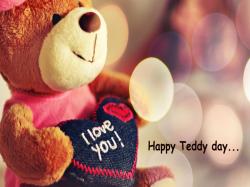






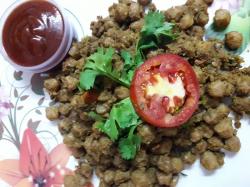

















.jpg)

.jpg)

.jpg)

.jpg)












.jpg)

.jpg)

.jpg)








.jpg)



.jpg)

.jpg)
.jpg)
.jpg)





.jpg)
.jpg)





.png)















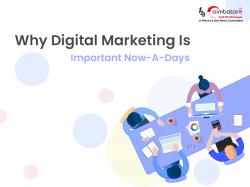
.jpg)


.jpg)


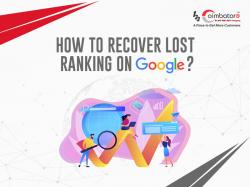
.jpg)


.jpg)



.jpg)




.jpg)

.jpg)




.jpg)




.png)
.jpg)


.jpg)

.jpg)




.png)





.jpg)







.jpg)














.jpg)










.png)


.png)
.png)
.jpg)


.png)


_(1)_(1).png)
.jpg)






















.jpg)


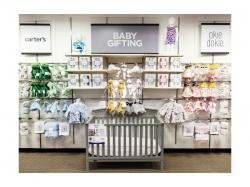



.jpg)


.jpg)











